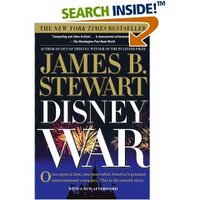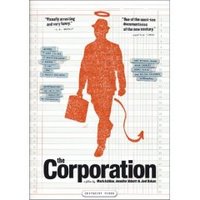Congratulations this morning to Exxon Mobile for announcing the “second largest quarterly profit ever recorded by a publicly traded U.S. company.” Oh no…here it comes again. I can already hear the “controversy” over Exxon Mobile “gouging” the American citizens for their hard earned dollars.
I’m not sure I can say more about this than I already have in other posts, but because I know the alarmists of the world will be in full swing I’ll say it again. Exxon Mobile announced net income of 10.36 billion dollars. That’s profit (“for those of you in Rio Linda”) that the U.S. government will tax to finance everything from bombs to National Public Radio. That 10.36 billion in profit came from 99.03 billion in revenue. A profit margin of (drum roll please)…..10.46%.
10.46 percent is certainly an impressive number when taking into account that enormous size of Exxon Mobile’s enterprise. However, in the grand scheme of things, as I’ve said before, a ten percent profit margin is just not gouging.
So while I’m at it, let me congratulate the 83,700 employees of Exxon Mobile. You all have managed to keep yourselves gainfully employed at good paying jobs. You likely have mortgage payments you pay, and children you manage to feed and send off to college. You likely have a couple of cars you’ve paid for and maybe you even help support the credit industry by taking out a loan on one of those vehicles. Oh, and lest I forget, all 83,700 of you probably pay your taxes, from the wages you earn at Exxon Mobile.
So when you read the reports of the congressman and senators renewed calls for investigations into “consumer price gouging at the oil pump,” maybe you’ll do as I do. Roll your eyes, sigh, and hope that our elected officials will just let Exxon Mobile get back to continuing to help make the United States the most productive nation on Earth.
Thursday, July 27, 2006
Tuesday, July 25, 2006
Disney War

“Disney War” by James B. Stewart is a great example of my favorite type of business book, a company profile with intimate access to characters and events. While Roy Disney and Stanley Gold’s revolt against the Disney board of directors in 2003 and 2004 is a major topic of the last quarter or so of the book, it really is the story of Michael Eisner’s twenty year rein as the CEO of the company.
After reading the book I came away thinking that Mr. Eisner is an absolutely fascinating individual. The book is blunt and pulls no punches. Story after story paints Eisner as an overly political being who is loose with the truth, either by design or because he forgets the difference. At the same time, he must be credited with the stunning growth in Disney between 1984 when he took the helm and 2004. The book takes you through the back story of a litany of TV shows, movies, personalities, both within Disney’s sphere and as part of the greater entertainment industry.
What emerges is the picture of two large stages of Eisner’s reign at Disney. The first is characterized by success after success, driven by the reinvigoration of Disney’s animation studios, the retail stores, and successes of both Touchstone and Mirimax live action films. The first ten years were characterized by the presence of Frank Wells, a seasoned executive who agreed to play second to Eisner’s leadership role when the two took over Disney in 1984.
The second ten years of Eisner’s term is marked by a steady decline. The book recounts the story of the loss of Jeffrey Katzenberg and the eventual $280 million payoff from an arbitration settlement. The matter at one time could have been settled for $40 million, but wasn’t, primarily due to Eisner. Next the story moves to Eisner’s hiring and eventual firing of super agent Michael Ovitz as President to replace Frank Wells who was killed in a helicopter accident. In amongst all of these stories are the ups and downs of the various executives at Disney, including the film studios, the animators, the “Imagineers,” ABC, ESPN, ABC Family Network, the theme parks in both Europe and the states, the retail stores, and relations with external companies such as Pixar.
The book is a great read, full of enough “boardroom drama,” smashing successes, and corporate intrigue to keep any MBA hooked well into the night. J
(incidentally, James Stewart’s book “Den of Thieves” about Michael Milken and Ivan Boesky is another great read (and winner of the Pulizer Prize).
After reading the book I came away thinking that Mr. Eisner is an absolutely fascinating individual. The book is blunt and pulls no punches. Story after story paints Eisner as an overly political being who is loose with the truth, either by design or because he forgets the difference. At the same time, he must be credited with the stunning growth in Disney between 1984 when he took the helm and 2004. The book takes you through the back story of a litany of TV shows, movies, personalities, both within Disney’s sphere and as part of the greater entertainment industry.
What emerges is the picture of two large stages of Eisner’s reign at Disney. The first is characterized by success after success, driven by the reinvigoration of Disney’s animation studios, the retail stores, and successes of both Touchstone and Mirimax live action films. The first ten years were characterized by the presence of Frank Wells, a seasoned executive who agreed to play second to Eisner’s leadership role when the two took over Disney in 1984.
The second ten years of Eisner’s term is marked by a steady decline. The book recounts the story of the loss of Jeffrey Katzenberg and the eventual $280 million payoff from an arbitration settlement. The matter at one time could have been settled for $40 million, but wasn’t, primarily due to Eisner. Next the story moves to Eisner’s hiring and eventual firing of super agent Michael Ovitz as President to replace Frank Wells who was killed in a helicopter accident. In amongst all of these stories are the ups and downs of the various executives at Disney, including the film studios, the animators, the “Imagineers,” ABC, ESPN, ABC Family Network, the theme parks in both Europe and the states, the retail stores, and relations with external companies such as Pixar.
The book is a great read, full of enough “boardroom drama,” smashing successes, and corporate intrigue to keep any MBA hooked well into the night. J
(incidentally, James Stewart’s book “Den of Thieves” about Michael Milken and Ivan Boesky is another great read (and winner of the Pulizer Prize).
Monday, July 24, 2006
Well, Michael Moore would be proud at least

The documentary film, “The Corporation” starts out reasonable enough, touching on the history of the modern corporation, but quickly devolves into a socialist diatribe on all the “evils” of capitalism. The film is essentially a list of categories of bad things corporations have done (or allegedly done), peppered throughout with the opinions of the likes of Michael Moore and Noam Chomsky. “Balance” comes through what appear to be highly edited clips of Milton Friedman and an advocate of private property (gasp!).
The film begins with the evolution of the modern corporation in the industrial age, describing laws that established corporations as the equivalent of an “individual” in society with the rights to buy and sell property, borrow money, and sue people under the law. As part of the definition of a corporation, the film offers “externalities,” as a basic characteristic and fact of corporate life, that is – an entity that engages in agreements between two parties that then pushes as much work or external burden on an unwary third party (presumably the public).
The film makers then go on to ask, “well if the corporation is a person, what type of person would it be?” What follows is an almost laughable case for why the corporation possesses all of the characteristics of a psychopathic person, going through a checklist of bad behavior traits that purportedly describe corporate deviance. The producers go so far as to bring in a “FBI profiler” who tells us that corporations do indeed posses all the personality traits of a psychopath. Milton Friedman thankfully points out that while corporations may not have a soul per se, it is the people who run that company that provide it’s moral compass (paraphrasing).
Then “The Corporation” runs through every corporate scandal in history, from pollution, to bad chemicals, to smoking, to accounting scandals, to sweat shops and even dips into IBM’s alleged aide to the Nazi’s as part of the Holocaust. We’re told that corporations only have one thing, the bottom line, and according to Michael Moore, the “problem comes in the profit motive.”
In fact, if I had to sum up the whole movie it would be just that, “an attack on the profit motive.” Not one shred of argument is given to the literally billions of benefits mankind enjoys due solely to man’s pursuit of profit (when is the last time you tried to grow your own apples? Build your own combustion engine? Concoct your own heart medicine?) No, instead the “reformed” CEO of a carpet company, Interface, explains that “every living system on the Earth is in decline,” that, “no scientific paper in the past thirty years would contradict” this, and that it is man’s pursuit short term profits that is to blame. He goes on to “confess” that “I have been running Interface like a plunderer – some day they’ll put people in jail for that.”
This movie is fodder for the easily swayed, simple minded folk. “Proof” that corporations and the profit motive is evil comes in many forms. We’re given Mark Barry, author of “Spooked: Espionage in Corporate America,” who declares “I am a spy,” and tells of a National Security Agency meeting that has people from major corporations attending (gasp!). We’re given a “trader” who’s name I didn’t pick up who tells us the first thing that “every” trader thought just minutes after the September 11th attacks was, “the price of gold will soar!”
One after another we’re given reason to hate “the man.” Certainly some have merit in that they were the “bad apples” the film mocks. For many others, they’re backed up with the loosest of “facts” and philosophic opinions. Curiously, the film takes the wind out of its own sails when the major proponent against child labor in the third world (a good thing of course!) declares when speaking of The GAP – “you can still reach these companies – you can still have an effect!” Some of us would point out that shaming a company into doing the right thing is A- good business, and B- part of the “market forces” that these people so deride.
Michael Moore (who else) helps us fade to black with thoughts on the irony of his own claim to fame. He points out that he himself is distributed and in fact promoted by large corporations. Why? Why would they do that he asks? It’s the “greed flaw” he tells us, “they don’t believe in anything.” Mostly I picture this film’s target market saying “yeah. Yeah man, they don’t believe in anything!” I wonder if that same person will stop to ponder the part of the “greed factor” that made Michael Moore independently wealthy. Is he just exempt from that?
Watch it if you will, but I find it’s arguments pathetically lacking. Certainly there are many examples (endless?) of people as part of corporations committing immoral and illegal acts. However, is it at a hirer rate than individuals acting in this manner? Malfeasance should be pursued, investigated, prosecuted, and punished; however, the corporation itself is not evil. Corporations today provide one vehicle for millions upon millions of people to serve and be served by their fellow man. Further, they are motivated by the “profit motive” (as would an individual on his own), which in turn can be invested to grow capacity for further service.
The film begins with the evolution of the modern corporation in the industrial age, describing laws that established corporations as the equivalent of an “individual” in society with the rights to buy and sell property, borrow money, and sue people under the law. As part of the definition of a corporation, the film offers “externalities,” as a basic characteristic and fact of corporate life, that is – an entity that engages in agreements between two parties that then pushes as much work or external burden on an unwary third party (presumably the public).
The film makers then go on to ask, “well if the corporation is a person, what type of person would it be?” What follows is an almost laughable case for why the corporation possesses all of the characteristics of a psychopathic person, going through a checklist of bad behavior traits that purportedly describe corporate deviance. The producers go so far as to bring in a “FBI profiler” who tells us that corporations do indeed posses all the personality traits of a psychopath. Milton Friedman thankfully points out that while corporations may not have a soul per se, it is the people who run that company that provide it’s moral compass (paraphrasing).
Then “The Corporation” runs through every corporate scandal in history, from pollution, to bad chemicals, to smoking, to accounting scandals, to sweat shops and even dips into IBM’s alleged aide to the Nazi’s as part of the Holocaust. We’re told that corporations only have one thing, the bottom line, and according to Michael Moore, the “problem comes in the profit motive.”
In fact, if I had to sum up the whole movie it would be just that, “an attack on the profit motive.” Not one shred of argument is given to the literally billions of benefits mankind enjoys due solely to man’s pursuit of profit (when is the last time you tried to grow your own apples? Build your own combustion engine? Concoct your own heart medicine?) No, instead the “reformed” CEO of a carpet company, Interface, explains that “every living system on the Earth is in decline,” that, “no scientific paper in the past thirty years would contradict” this, and that it is man’s pursuit short term profits that is to blame. He goes on to “confess” that “I have been running Interface like a plunderer – some day they’ll put people in jail for that.”
This movie is fodder for the easily swayed, simple minded folk. “Proof” that corporations and the profit motive is evil comes in many forms. We’re given Mark Barry, author of “Spooked: Espionage in Corporate America,” who declares “I am a spy,” and tells of a National Security Agency meeting that has people from major corporations attending (gasp!). We’re given a “trader” who’s name I didn’t pick up who tells us the first thing that “every” trader thought just minutes after the September 11th attacks was, “the price of gold will soar!”
One after another we’re given reason to hate “the man.” Certainly some have merit in that they were the “bad apples” the film mocks. For many others, they’re backed up with the loosest of “facts” and philosophic opinions. Curiously, the film takes the wind out of its own sails when the major proponent against child labor in the third world (a good thing of course!) declares when speaking of The GAP – “you can still reach these companies – you can still have an effect!” Some of us would point out that shaming a company into doing the right thing is A- good business, and B- part of the “market forces” that these people so deride.
Michael Moore (who else) helps us fade to black with thoughts on the irony of his own claim to fame. He points out that he himself is distributed and in fact promoted by large corporations. Why? Why would they do that he asks? It’s the “greed flaw” he tells us, “they don’t believe in anything.” Mostly I picture this film’s target market saying “yeah. Yeah man, they don’t believe in anything!” I wonder if that same person will stop to ponder the part of the “greed factor” that made Michael Moore independently wealthy. Is he just exempt from that?
Watch it if you will, but I find it’s arguments pathetically lacking. Certainly there are many examples (endless?) of people as part of corporations committing immoral and illegal acts. However, is it at a hirer rate than individuals acting in this manner? Malfeasance should be pursued, investigated, prosecuted, and punished; however, the corporation itself is not evil. Corporations today provide one vehicle for millions upon millions of people to serve and be served by their fellow man. Further, they are motivated by the “profit motive” (as would an individual on his own), which in turn can be invested to grow capacity for further service.
Subscribe to:
Comments (Atom)


